The contest for control of the Bengaluru municipal council promises at least some surprises. Like first-time contestants Aam Aadmi Party (AAP) and the Bengaluru Navanirmana Party (BNP) – formed in 2019 as a party exclusively for Bengaluru city – both hoping to make to make a mark, if not cause any major upsets. AAP is harbouring ambitions of a larger state presence if the BBMP election campaign proves encouraging.
The three other contestants, the BJP, Congress and JD(S) are banking on the past record of work they have done for the city. The latter two have only their State leaders to bank on currently, whereas the BJP plans to cash in on Prime Minister Modi’s popularity. These parties, in particular, are in a rush to get their acts together, as the results of the BBMP Council elections could well be a portend of what awaits them in the State Assembly elections due next year.
The BBMP has been without an elected Council since 2020. Now that the Supreme Court has directed the State Election Commission to hold the polls within the next couple of months, the rush is on to finalise manifestoes and candidates. All are awaiting the final delimitation document to understand the new ward boundaries (as the number of wards will increase from 198 to 243) and the finalisation of reserved seats.
Citizen Matters spoke to leaders of all parties about their plans for the BBMP election.
BJP banking on Modi, governance record
Dr Ashwathnarayan C N, Minister for Higher Education, IT & BT, Science and Technology in the current BJP government, says the party campaign will highlight BJP’s good governance and development of Bengaluru – construction of roads, stormwater drains, parks, and projects like suburban rail, Metro Phase 2 and 3 and the controversial Peripheral Ring Road.
“We also enacted the BBMP Act, which brought structural and administrative change in BBMP,” says Ashwathnarayan. “It brought about greater decentralisation – for example, zonal councils and the position of zonal commissioners were created, similar to the Mumbai model”.
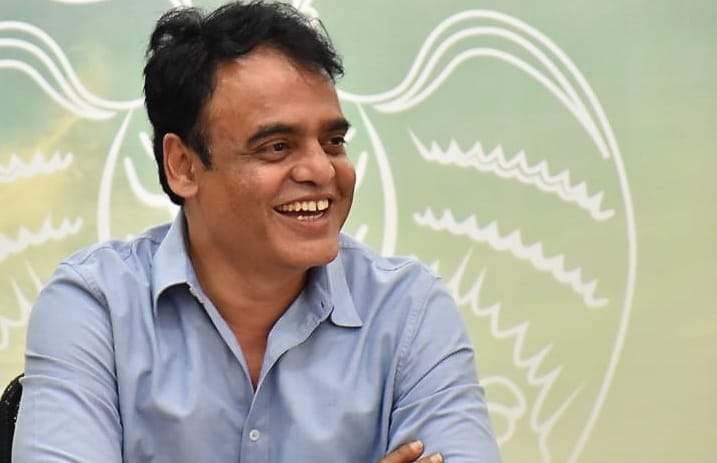
The party is also banking on Prime Minister Modi’s popularity. Ashwathnarayan says, “Modi’s initiatives like UPI/digitisation, Aadhar integration for services and Aatmanirbhar Bharat have helped Bengaluru startups,” says the minister. He believes the Centre’s decisions on Article 370, Ayodhya Ram temple, Pakistan and China will also go down well with the electorate. “Modi is quite popular in Bengaluru, so this will be a favourable factor in the BBMP election. People grade us by looking at our work at the local, state and national levels.”
Is the ruling party worried about the public’s frustration with the city’s poor infrastructure – potholed roads, poorly-managed drains causing flooding, etc? “Yes, there are civic issues,” admits Ashwathnarayan. “In the last two years, there has been a lot of disruption and challenges [in getting works done]. Monsoons have also been unpredictable. Now we are trying to get all roads and other works done.”
Read more: Lessons from Bengaluru citizens on how to have party-proof agendas
Congress highlights past successes like TenderSURE
Not to be outdone, Ramalinga Reddy, seven-time Congress MLA from Bengaluru and currently Working President of the KPCC (Karnataka Pradesh Congress Committee), says his party’s USP is having a long history of getting development works done in Bengaluru. He cites examples such as the Cauvery drinking water projects, the international airport, TenderSURE roads, approval of Metro rail by the Manmohan Singh government at the Centre, projects like Swaccha Bengaluru and Silicon City.
“BJP has done nothing for Bengaluru,” Reddy says, alleging they had left BBMP a debt of more than Rs 8,000 crore as well as 14 buildings mortgaged, by the end of their 2008-2013 Council term. He also mentions recent controversies around the BJP government – the ongoing High-Court case on potholed roads, allegations of 40% commission being collected from contractors, etc.
“We will highlight our works; and talk about the issues with BJP, including unemployment levels nationally and about Modi’s promises,” adds Reddy. “We will talk about city, state and national politics. Our promises this election include pothole-free roads, garbage-free Bengaluru, drinking water for all, reviving the ‘Onti Mane’ housing scheme (affordable housing for SC/ST/OBC communities), improving storm water drains and traffic engineering. Also, we will not increase property tax frequently.”
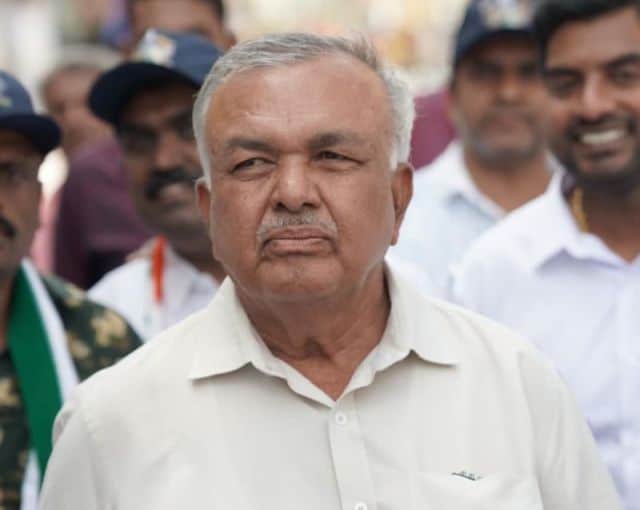
Reddy is confident that the Congress will win the Council elections. “About 20% voters are politically neutral and vote based on issues. This section is unhappy with BJP’s governance and will vote for Congress,” he says. He adds that many in the city have enrolled in the Congress recently.
But a confident Ashwathnarayan says he sees no opposition to BJP. “We will get two-thirds of seats in the Council. Our strength is booth-level door-to-door campaigns.”
Both Ashwathnarayan and Reddy say they don’t see new entrant AAP as a threat.
JD(S) promises civic works, healthcare, education
K A Thippeswamy, a JD(S) MLC and former KAS officer, is among those coordinating the JD(S) election efforts . “The JD(S) will field candidates in at least 150-200 out of the 243 new wards, wherever the party is strong,” says Thippeswamy. “We are strong in west, north and in parts of south Bengaluru – areas like Jayanagar, Govindaraja Nagar, Dasarahalli, Yelahanka, RR Nagar, etc. Our presence is not so great in newly added areas like Mahadevapura and KR Pura. People from other districts of Karnataka who settled in Bengaluru long ago are also a strong base for us”.
The JD(S) currently has only one MLA in Bengaluru, representing Dasarahalli Assembly Constituency.
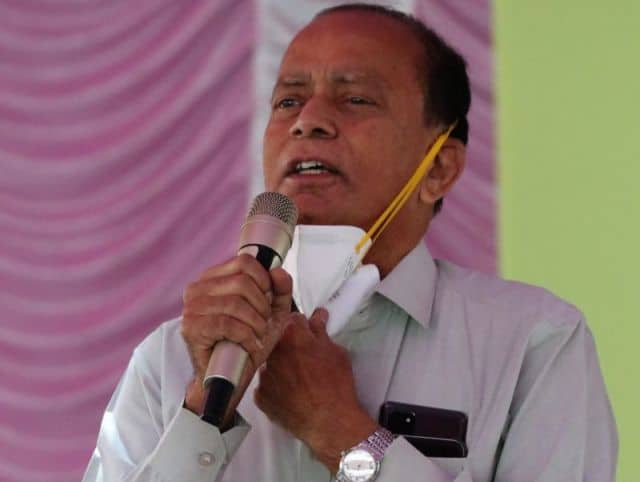
The party’s campaign will highlight problems the city is facing. Thippeswamy says drinking water is a major problem, along with roads and waste segregation. “Except the Central Business District, other parts of the city don’t have good roads and solid waste segregation. The newly-added areas are underdeveloped overall.”
Thippeswamy also talks about poorly-functioning ward committees. “Ward committees have not been formed properly, so proper fund utilisation and supervision is not being done and the quality of works is not assured. Instead of political nominations, people from various sections of society should be made part of ward committees.”
He says that JD(S) will provide civic amenities, and also improve public education and healthcare. “The infrastructure in BBMP schools will be improved, and where land is available, schools can be established with the help of the state government,” promises the JD(S) leader. “This will help the urban poor and much of the middle class in Bengaluru. With this, the fees in private schools may also reduce. Similarly, we want to upgrade BBMP hospitals with good lab facilities and maternity wards. Housing for the urban poor is also a focus area”.
Like the Congress, JD(S) too plans to highlight the legacy of the party’s achievements in Bengaluru – construction of Outer Ring Road, getting Supreme Court judgement for Cauvery water sharing, slum development and flyover projects, to name a few.
In addition to going door-to-door, the party plans to bring in senior leaders including H D Devegowda for its campaign. “We are expecting not less than 120 seats in this election,” Thippeswamy says.
AAP promises Delhi model for Bengaluru
The new entrant in the fray, the AAP, has been carrying out a low key campaign in the city for the last two years. “Given the confusion about ward delimitation and reservation, the party is preparing multiple candidates for the same ward,” says Prithvi Reddy, AAP’s Karnataka Convenor and National Executive Member. “We are planning to increase the number of people who are interested in contesting, and our immediate campaign will cover the entire city instead of specific wards. For us, the election is more about what the party can offer, rather than the individual candidate.”
AAP’s campaign focus is based on its Delhi model of governance. “Our track record in Delhi shows what we have delivered in terms of education and healthcare,” says Prithvi. “We have a model wherein each family can save a certain amount of money per month because of these services. For example, an auto driver may save over Rs 5,000 per month if his children go to a government school instead of a private school.”
“The rest of the problems in Bengaluru relate to corruption – whether garbage, or the condition of lakes or roads, these problems are unsolved because of corruption and the lack of intent. We are not proposing any specific solution to these problems, because there already are solutions. Instead, we will talk about our intent to solve problems. Apart from that, we will focus on accountability, transparency and accessibility of elected representatives,” says Prithvi.
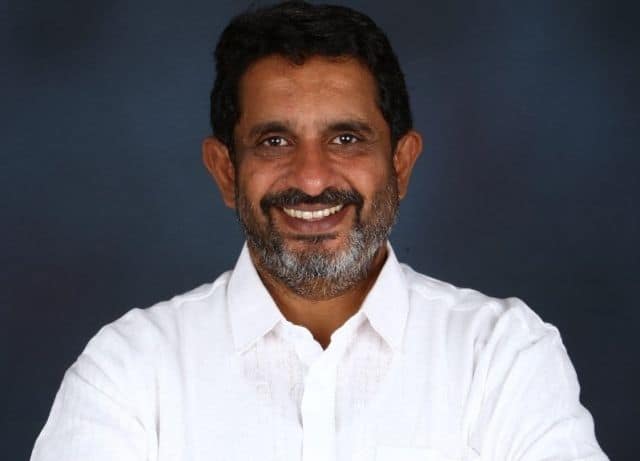
Prithvi believes that AAP’s lack of a track record in Bengaluru isn’t a problem. “Today, every Bengalurean is concerned with the collapse of the city. People didn’t vote earlier because they didn’t have a credible option. Since they have given a chance to everyone else, we seek an opportunity to make a change.”
Read more: BNP, AAP bring issues of transparency, governance, to BBMP poll debate
BNP promises citizen participation, accountability, transparency
The city party BNP is also contesting on promises of good governance. Srikanth Narasimhan, an IIM-B graduate and Co-founder and General Secretary of BNP, says they plan to contest in 200-225 out of the 243 wards. The BNP has been known for their work to make ward committees effective, and for putting out data on BBMP’s works and expenses.
Srikanth says BNP makes three promises: “First, citizen participation – through Area Sabhas, citizens will decide which projects should be taken up in their ward, before the annual BBMP budget is finalised. Second, accountability – an Area Sabha member will be designated as the project manager responsible for coordination and overseeing of every project. Third, transparency – the details of all projects in the ward will be put in public domain.” (Area Sabha is a gathering of voters to plan for the particular area in their ward. A parallel to Grama Sabhas of rural areas, Area Sabhas have not yet been formed in Bengaluru formally.)
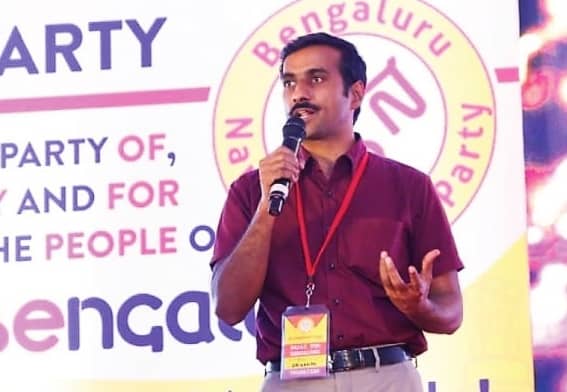
Srikanth says BNP would be a serious contender in around 100 wards out of 243. “Our base is stronger among the middle class, largely because of many of our backgrounds. The party is stronger in outer areas like Mahadevapura that have poor civic amenities and a high middle-class population,” he says.
“While we did work with slums, we found it very difficult to make inroads because existing parties are already very strong there,” says Srikanth. “Whereas the middle class has been paying taxes but are getting the least amenities.”
Srikanth is quick to clarify that this doesn’t mean low-income groups won’t be represented. The BNP, for example, has developed the model of a ‘Nimma Arogya’ programme (preventive and primary healthcare) that BBMP can implement in slums. “Ultimately, housing and lack of toilets in slums, are all civic issues. We will work on all of these.”
Srikanth says that the increasing popularity of ward committees has helped BNP. The party, which has a flat structure, has up to 150 volunteers in certain wards.
He says, “We are the only party that focuses on Bengaluru and its civic issues, and who can deliver governance by local people who have no political ambition. We are not distracted by issues like caste and religion”.